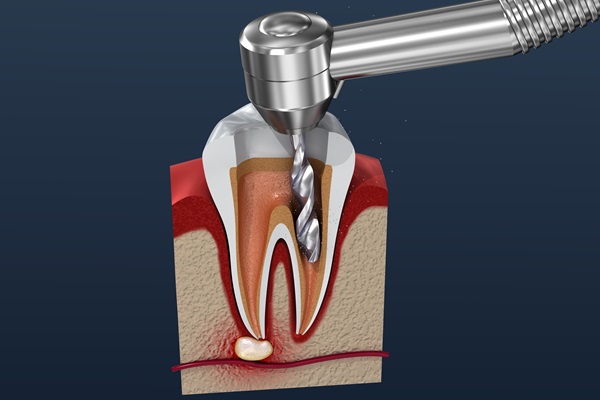Indications for a Root Canal: What To Look Out For

A root canal is a procedure that dentists can perform to stop infection inside a tooth by removing its pulp, or the material in the center of a tooth. Since teeth are made of enamel and other hard materials, they do not swell up to warn you that an infection might be present, like other areas of the body might. You should know the symptoms that indicate the need for a root canal, so you can seek treatment promptly.
When a root canal may be necessary
A tooth may fall victim to decay that can be fixed with a filling or crown, but a root canal could be the only way to save a tooth when infection sets in. Signs that indicate that a root canal may be necessary include the following.
Severe tooth pain
Many people describe the pain of an infected tooth as one of the worst that they have ever felt, primarily because it does not usually respond to over-the-counter pain medicines. It can be hard to sleep or eat, and the pain may be constant or come in waves. Tooth pain that interferes with a person’s daily life should be addressed by a dentist immediately.
Long-lasting sensitivity
Teeth may be temporarily sensitive to heat, cold, or certain foods when a specific triggering event occurs, such as biting into ice cream or eating immediately after a whitening treatment. This surprising jolt usually subsides a few moments after the trigger.
However, if tooth sensitivity continues for a long time after a triggering event or a particular tooth has suddenly become sensitive, it is time to visit the dentist. The nerves inside an infected tooth may be falling victim to infection and are often inflamed, thereby responding more aggressively to formerly minor stimuli.
Gum swelling or bumps
A tooth’s inner chamber (the pulp) is connected to the gums and eventually, the jawbone. If an infection progresses far enough to exit the tooth’s pulp chamber, it can also cause swelling and abscesses in the surrounding gums. Inflammation, bumps, or unusual redness in the gums around a specific tooth are always worth visiting a dental professional for an exam.
Tooth changes
Once an infection begins, teeth have few options for combatting it. As the formerly healthy inside of a tooth decays, it can start to change color. Discolored teeth that turn brown, black, gray, or dark yellow are likely dying and need immediate attention.
Patients may notice that their tooth is not necessarily discolored but is still lacking its former luster. This can occur as the infection cuts off the blood supply inside the tooth. Any unusual changes to teeth warrant a dental visit.
A root canal can preserve a tooth
An infection inside a tooth can be uncomfortable, but it does not have to mean losing the tooth entirely. A root canal can save the tooth by eliminating the infection while preserving the tooth’s structure and roots. Contact our office if you are experiencing any of these symptoms or have concerns about how your mouth is feeling.
Are you considering a root canal in the Simi Valley area? Get more information at https://www.dentalgroupofsimivalley.com.
Check out what others are saying about our dental services on Yelp: Root Canal Treatment in Simi Valley, CA.
Related Posts
Need a restorative dentist? Do you have an awkward smile? Have you been told by friends and family that your teeth need some attention? If so, don't worry! Many dentists can help. One option is to see a dentist who offers restorative treaetments. This type of dentistry will provide the best options for restoring your…
Routine checkups from your general dentist can maintain or even improve your dental health. It can be challenging to keep your dental appointments because of busy schedules and demanding lifestyles. But making an effort to keep them can be very rewarding. Here are the details on how regular appointments with your general dentist can maintain…
Adjusting to new dentures is a familiar feeling to the 36 million Americans that have no teeth, according to the American Dental Association (ADA). Dentures allow those Americans to eat and speak normally when they have lost their natural teeth to age, gum disease, or dental trauma. Unfortunately, even the best dentures are expected to…
General dentists are some of the most visited professionals in their field. The American Dental Association recommends that people as young as one year old maintain a biannual checkup schedule. Their primary aim is to preserve or improve patients' oral health, which they do in various ways. Let us look at six of them.Depending on…
